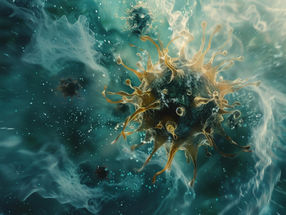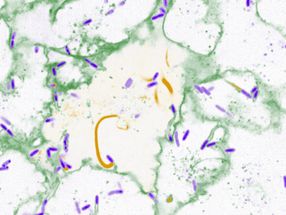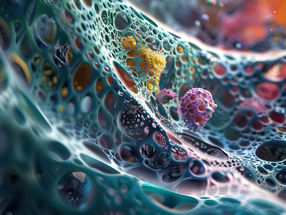Researchers find new chemotherapy combination shows promise in endometrial cancer
50 percent of patients respond to gemcitabine and cisplatin when used together
Researchers from The University of Texas M. D. Anderson Cancer Center report that in a small study of women with advanced or recurrent endometrial cancer, gemcitabine and cisplatin, when used in combination, produced a response rate in fifty percent of patients. Jubilee Brown, M.D., associate professor in M. D. Anderson's Department of Gynecologic oncology, presented the findings at of the Society of Gynecologic Oncologists' 41st Annual Meeting on Women's Cancer.
While early-stage endometrial cancer typically responds well to standard therapies, low survival rates for advanced or recurrent disease result from limited and ineffective chemotherapy and hormonal treatment options. The American Cancer Society estimates that 15 percent, or three out of every 20 of women with stage IV endometrial cancer, will survive more than five years.
The Phase II study of 20 patients found that the combination of gemcitabine and cisplatin, two drugs currently used to treat other types of cancer, limited the disease's progression, increasing progression-free survival while maintaining tolerable toxicity levels. It is believed that when administered together, gemcitabine helps overcome cell resistance to cisplatin, throwing tumor cells a potent one-two punch.
"These results are encouraging, offering a new direction for our research for women who suffer from advanced disease," said Brown, the study's lead author. "The findings have the potential to offer another option to these patients, but establishing this treatment as a standard of care will require more research."
Researchers enrolled patients with stage IV or recurrent endometrial cancer between November 2004 and September 2009 in the single-institution study. Women were treated with gemcitabine and then cisplatin twice during each chemotherapy cycle, undergoing an average of five cycles. Patient response was evaluated with physical and pelvic examinations and imaging studies (computed tomography or magnetic resonance imaging) after every three cycles.
Of the 20 patients, two had a complete remission; eight had a partial response, or a decrease in the size of a tumor or in the extent of cancer in the body; six patients experienced a stabilization of disease, meaning their cancer neither decreased nor increased in extent or severity; and four experienced a progression in disease, meaning their tumor grew or cancer metastasized.
Findings demonstrated a 50 percent overall response rate, or improvement in disease. Additionally, the clinical benefit of the two-drug combination was 80 percent, as 16 of the 20 women experienced either an improvement or stabilization of disease. All side effects resulting from the therapy were manageable. Brown noted that results from the study warrant investigation of the chemotherapy combination in a larger, definitive trial at multiple institutions.
Most read news
Other news from the department science

Get the life science industry in your inbox
From now on, don't miss a thing: Our newsletter for biotechnology, pharma and life sciences brings you up to date every Tuesday and Thursday. The latest industry news, product highlights and innovations - compact and easy to understand in your inbox. Researched by us so you don't have to.
























































